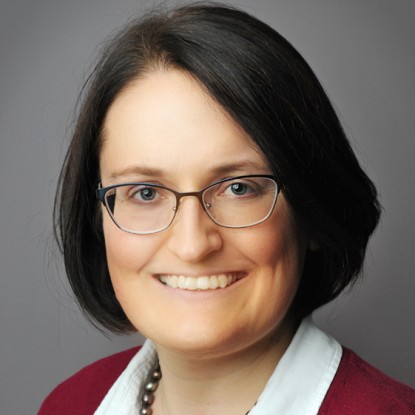Dr. Alexandra Eppinger
Ancient History
Research and teaching fellow
Contact
Qualifications
- 2013: Ruprecht Karls-Universität Heidelberg, Germany,
PhD in Classical Archaeology. Supervisor: Prof Tonio Hölscher
„Hercules in der Spätantike. Die Rolle des Heros im Spannungsfeld von Heidentum und Christentum“
Grade: Magna cum laude - 2008: Ruprecht Karls-Universität Heidelberg, Germany
Magistra Artium in Classical Archaeology, Ancient History, Latin
employment
• 10/2018-09/2022: Technische Universität Darmstadt, Germany: Research Associate in the Department of Ancient History
Previous employment
- 4/2018 – 7/2018: Goethe-Universität Frankfurt am Main, Germany: Visiting Lecturer in the Department of Ancient History
- 10/2014 – 9/2018: Johannes Gutenberg-Universität Mainz, Germany: Research and Teaching Assistant in the Department of Ancient History; Keeper of the university’s coin collection
- 4/2014 – 7/2014: Ruprecht Karls-Universität Heidelberg, Germany: Research and Teaching Assistant in the Department of Ancient History
- 10/2013 – 2/2014: Johannes Gutenberg-Universität Mainz, Germany: Research and Teaching Assistant in the Department of Ancient History
- 10/2009 – 2/2010: Ruprecht Karls-Universität Heidelberg, Germany: Visiting Lecturer in the Institute for Classical Archaeology
- 2005 – 2014: Ruprecht Karls-Universität Heidelberg, Germany: Tutor in the Department of Ancient History
- Ancient Atheism
- Late Antiquity
- Reception of Hercules
Thesis of habilitiation (second book)
„Untersuchungen zum Atheismus in der römischen Welt“ (working title)
Monograph
- Hercules in der Spätantike. Die Rolle des Heros im Spannungsfeld von Heidentum und Christentum, Philippika 89, Wiesbaden 2015.
Papers
- Hercules cinaedus? The Effeminate Hero in Christian Polemic, in: D. Campanile/F. Carlà-Uhink/M. Facella (Hgg.), TransAntiquity. Cross-Dressing and Transgender Dynamics in the Ancient World, London/New York 2017, 202-214.
- Exemplum virtutis for Christian emperors: the role of Herakles in late antique imperial representation, in: A. Allan/E. Anagnostou-Laoutides/E. Stafford (Hgg.), Herakles Inside and Outside the Church: from the First Apologists to the End of the Quattrocento, Leiden 2020, 73-93.
- Hercules the Younger. Heroic Allusions in Late Eighteenth Century British Political Cartoons, in: V. Mainz/E. Stafford (Hgg.), The Exemplary Hercules from the Renaissance to the Enlightenment and Beyond, Leiden 2020, 265-292.
- The Early Christian Heracles, in: D. Ogden (Hg.), The Oxford Handbook of Heracles, Oxford/New York 2021 [Part V, Chapter 37].
forthcoming:
- A crisis of ‘atheism’ in ancient Rome? On the perception of nonreligion as a threat in the Roman Empire, in: M. Kõiv et al. (Hgg.), Crises in Early Religions, Studies in Universal and Cultural History, Wiesbaden: Springer.:
Journal paper, non-academic
- Herkules: Gott, Held, Schurke, in: DAMALS 2/2015 (47. Jahrgang), S. 45-46.
Reviews
- Thomas K. Hubbard (ed), A Companion to Greek and Roman Sexualities. Blackwell Companions to the Ancient World. Literature and Culture. Malden, MA; Oxford; Chichester: Wiley-Blackwell, 2014. BMCR 2014.09.06
- Michele Renee Salzman/Marianne Sághy/Rita Lizzi Testa (eds), Pagans and Christians in Late Antique Rome: Conflict, Competition, and Coexistence in the Fourth Century. New York: Cambridge University Press, 2015. BMCR 2017.01.31
09/2019: “Der Vorwurf der ‘Gottlosigkeit’ als Legitimation von Gewalt in der griechisch-römischen Antike”(Johannes Gutenberg-Universität Mainz, Germany, Conference “Religiöse (De-)Legitimationsansätze von Gewalt in der Antike”)
01/2018: “‘Laß niemand dem Atheismus huldigen!’ Die Wahrnehmung von ‘Gottlosigkeit’ als Bedrohung in der römischen Kaiserzeit”(Technische Universität Darmstadt, Germany)
11/2017: “Detestabilis turpitudo! Strategien frühchristlicher Mythenkritik am Beispiel des Hercules”(Universität Rostock, Germany)
07/2017: “Hercules the Younger? Heroic allusions in late eighteenth century British political cartoons”(University of Leeds, UK, Conference “Celebrating Hercules in the Modern World” – report)
06/2017: “A crisis of ‘nonreligion’ in ancient Rome?”(University of Tartu, Estonia, Conference “18th International Conference for Ancient East-Mediterranean Studies in Tartu: Crises in Early Religions”)
07/2014: “Transgender Erscheinungen in der Antike”?(Johannes Gutenberg-Universität Mainz, Germany, Conference “Karpeia – Mainzer Altertumswissenschaftliches Kolloquium für Nachwuchswissen-schaftlerinnen und Nachwuchswissenschaftler”)
06/2014: “Hercules in der Spätantike. Die Rolle des Heros im Spannungsfeld von Heidentum und Christentum”(Universität Trier, Germany, Award Ceremony for the Philippika-Award)
11/2013: “Hercules christianus? Der Heros/Gott im Spannungsfeld von Heidentum und Christentum” (Johann Wolfgang Goethe-Universität Frankfurt, Germany, Workshop for early career researchers: Religiöse Differenzierungen im Übergang von Kaiserzeit zur Spätantike)
05/2010: “Hercules – Champion of the Pagans?”(Kalamazoo, MI, USA, 45th International Medieval Studies Congress)
05/2009: Poster presentation and short talk about PhD dissertation(Knoxville, TN, USA, Conference “Integration and Diversity in the Culture and Religion of Late Antiquity”)
2006-2010: Ten lectures for the general public on various subjects, ranging from Greek theatre to Roman clothing(Ruprecht Karls-Universität Heidelberg, Germany)

